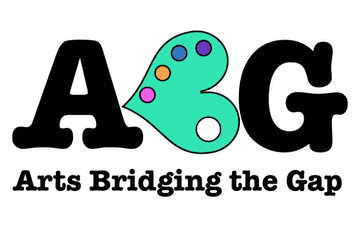Our Commitment to Equity, Diversity and Inclusion
Arts Bridging the Gap supports a full creative life for all humans, and believes that all members of a community should experience arts which reflect and nourish their identity, self-esteem and self-efficacy.
Arts Bridging the Gap is committed to ensuring racial and cultural equity in its outreach, funding, leadership, resource allocation, partnerships, and programs.
Arts Bridging the Gap believes that equity moves past inclusion and representation; accepting that power has created uneven starting points for some communities and individuals. We therefore commit to championing policies and practices of cultural equity that empower a just, inclusive, equitable nation.
Definitions:
Inclusion and access:
Every member of a community* having opportunities and access to encounter, appreciate, participate in, learn and be informed about the arts and culture.
Everyone experiencing equal access to a full, vibrant creative life, which is essential to a healthy and democratic society.
Fair and just pathways to appreciate and be exposed to the arts as well as attain information, financial resources and opportunities to fulfill cultural and artistic expression and development.
Cultural equity:
The inclusion and fair representation of multiple diverse populations in outreach and in the allocation of funding, resources (e.g., facilities and fiscal), and programs, providing equitable and fair treatment, access, opportunity, and advancement for all people, while at the same time striving to identify and eliminate barriers that have prevented the full participation of some communities.
All people— including but not limited to those who have been historically underrepresented based on race/ethnicity, age, disability, sexual orientation, gender, gender identity, socioeconomic status, geography, citizenship status, or religion—are represented in the development of arts policy; the support of artists; the nurturing of accessible, thriving venues for expression; and the fair distribution of programmatic, financial, and informational resources.
All people have the right to inherit, develop and engage in intellectual, emotional, material, and spiritual traditions and heritage.
Arts and cultural organizations and artists from all disciplines and cultural traditions are valued equally and supported equitably.
Arts Bridging the Gap Acknowledges that in In the United States, there are systems of power that grant privilege and access unequally such that inequity and injustice result, and that must be continuously addressed and changed.
Diversity
An Arts and cultural organization that reflect sand embraces the diversity of its communities in staffing, leadership, programming, including artists, and audiences/participants.
This definition includes all the ways in which people differ, including but not limited to, race, ethnicity, gender, socioeconomic status, age, gender identity, sexual orientation, disability, geography, citizenship status, religion, language, physical appearance, and those affiliating with multiple identities.
Our definition also includes diversity of thought: ideas, perspectives, and values.
As an organization Arts Bridging the Gap is founded and run on the beliefs that:
Our community’s diversity is an asset to our arts and cultural environment and our economy
Every individual has the right to engage in arts and culture that celebrate their highest potential.
Every individual has the right to participate in creative thinking and expression.
Including communities through the arts and culture achieves our highest potential, by promoting mutual respect and understanding.
The prominent presence of artists challenges inequities and encourages alternatives and that therefore we must lead in our actions.
Inequity is pervasive and historic. Simple diverse representation does not dismantle the unequal nature of voice, resource allocation, and visibility that exist in the arts and cultural ecosystems. Disparities and discrimination are daily occurrences that are entrenched in long standing majority privilege and power inside and outside of the arts; tackling issues surrounding these occurrences requires an understanding of the root causes of disparities within our society.
Furthermore, Arts Bridging the Gap believes that cultural equity is critical to the long-term viability of the arts sector. We must all hold ourselves accountable, because acknowledging and challenging our inequities and working in partnership is how we will make change happen.
As an organization Arts Bridging the Gap takes these actions every day to ensure that our work and practices are driven by the above beliefs:
Provide informed, authentic leadership for cultural equity.
Pursue cultural consciousness throughout our organization through substantive learning and formal, transparent policies.
Acknowledge and dismantle any inequities within our policies, systems, programs, and services.
Commit time and resources to expand more diverse leadership within our board, staff, and advisory bodies.
Encourage substantive learning to build cultural consciousness and to proliferate pro-equity policies and practices by all of our constituencies and audiences.
Practice proactive outreach to multiple diverse communities to support involvement and engagement in opportunities, programs, resources, and partnerships and provide accessibility and inclusivity in all aspects of leadership, partnerships, and programs.
Champion equitable resources to support and serve multiple diverse populations specifically.
Commit to systemic change that will remove barriers, thus improving access, empowerment and representation in the development and distribution of arts policy and resources to diverse communities and individuals.
Acknowledge that there are different methods of communication, and embraces a variety of communication styles that will allow for equitable access
*Arts Bridging the Gap define communities as municipalities, neighborhoods, social and cultural enclaves, diverse groups, and groups with distinct demographic characteristics as well as more formal institutions and organizations. We believe every human deserves to be a valued member of a community.
Adopted on 10/28/2018
(Signed by all Board of Directors)
